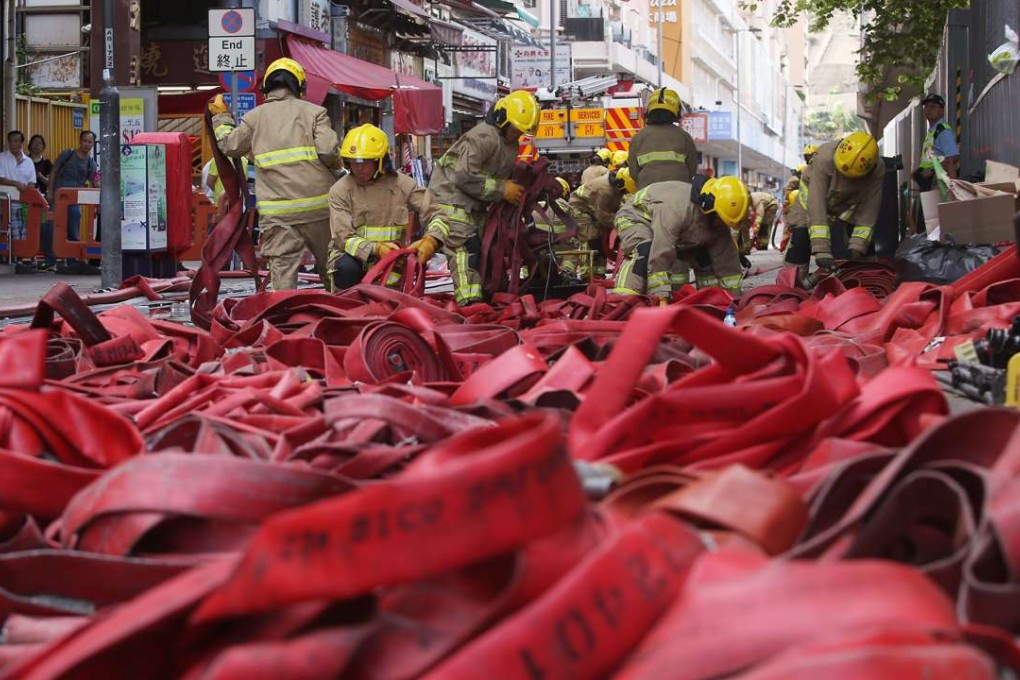Mini-storage fire at Hong Kong industrial building prompts debate on declaring stored goods
Calls made for all goods kept in storage facilities to be disclosed in interest of fire safety

Experts are divided on whether mini-storage customers should be asked to declare what goods they store given the potential fire safety hazards at such facilities in the aftermath of the deadly Ngau Tau Kok fire.
Fire Services Department Staffs General Association chairman Nip Yuen-fung said self regulation was too weak as they depended on customers complying with guidelines that mini-storage operators set.
“They may have guidelines which state no dangerous goods can be stored in the cubicles, but if all it says is if you breach it they’ll end your contract, then the regulatory oversight is quite weak,” said Nip on RTHK’s City Forum.
“Right now, every time they want to carry out inspection, they need to get the storage owner to come and unlock [the cubicle], to see what’s been stored inside.
The fire at Amoycan Industrial Centre killed two firefighters and took 108 hours to tame. The 200 storage cubicles divided by metal sheets posed a challenge for firefighters, who had to tear them down in order to gain access to the units to battle the blaze, which in many cases stored unidentified and possibly toxic contents.